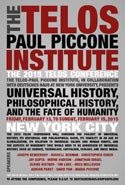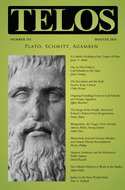 In his Critique of Judgment, Kant explains how “subjective judgments” resemble theoretical claims about truth in that they claim universal assent, even though they do not have an objective basis for doing so. In other words, although they are subjective, they assert a strict sense of objectivity and claim a universal ground for truth. Therefore, the proof of the validity of these judgments cannot be found in a specific “observable feature” of the object, but rather in the “actual intersubjective agreement.” While truth in his third Critique is neither a matter of the intellect nor a thing reducible to conceptual realm, it seems that he offers a different sense of truth that influenced the major trends in continental philosophy. One can trace this sense of truth as it provides a ground not only to “test the limits of our historical era” but also “to go beyond them.”
In his Critique of Judgment, Kant explains how “subjective judgments” resemble theoretical claims about truth in that they claim universal assent, even though they do not have an objective basis for doing so. In other words, although they are subjective, they assert a strict sense of objectivity and claim a universal ground for truth. Therefore, the proof of the validity of these judgments cannot be found in a specific “observable feature” of the object, but rather in the “actual intersubjective agreement.” While truth in his third Critique is neither a matter of the intellect nor a thing reducible to conceptual realm, it seems that he offers a different sense of truth that influenced the major trends in continental philosophy. One can trace this sense of truth as it provides a ground not only to “test the limits of our historical era” but also “to go beyond them.”
|
Wesley Phillips’s “Melancholy Science? German Idealism and Critical Theory Reconsidered” appears in Telos 157 (Winter 2011). Read the full version online at the TELOS Online website, or purchase a print copy of the issue here. |
||||
|
Telos Press Publishing · PO Box 811 · Candor, NY 13743 · Phone: 212-228-6479 Privacy Policy · Data Protection Copyright © 2025 Telos Press Publishing · All Rights Reserved |
||||
 What is the relationship between theory and praxis today? During the 1960s, Adorno’s melancholy science was reproached with the charge of resignation, echoes of which have continued up to the present day—whether in Agamben or in praxis-oriented radical thought. In what is the most substantial critique to date, Gillian Rose initially sympathized with Adorno only to reject his neo-Kantian Marxism—the problem being that the melancholy science would involve a masochistically infinite task concerned with the recovery of an irretrievable utopia, leading to a methodological detachment from the social object. Understood in this way, the question of finite social praxis becomes an immanently philosophical matter. While following Rose’s orientation toward German idealism—for its imagined critique of neo-Kantianism and theory-ism—this article argues that, due to his unsatisfactory treatment of historical suffering, a return to Hegel alone (albeit after Marx) is insufficient. Rather, a dialectic of Hegel and his adversary Schelling suggests a distinctive account of determinate activity that avoids Melancholia without rejoicing the actuality of world spirit. This is made possible by way of an affinity between conceptions of melancholy and history in Schelling and Benjamin, from whom Adorno develops his traurige Wissenschaft.
What is the relationship between theory and praxis today? During the 1960s, Adorno’s melancholy science was reproached with the charge of resignation, echoes of which have continued up to the present day—whether in Agamben or in praxis-oriented radical thought. In what is the most substantial critique to date, Gillian Rose initially sympathized with Adorno only to reject his neo-Kantian Marxism—the problem being that the melancholy science would involve a masochistically infinite task concerned with the recovery of an irretrievable utopia, leading to a methodological detachment from the social object. Understood in this way, the question of finite social praxis becomes an immanently philosophical matter. While following Rose’s orientation toward German idealism—for its imagined critique of neo-Kantianism and theory-ism—this article argues that, due to his unsatisfactory treatment of historical suffering, a return to Hegel alone (albeit after Marx) is insufficient. Rather, a dialectic of Hegel and his adversary Schelling suggests a distinctive account of determinate activity that avoids Melancholia without rejoicing the actuality of world spirit. This is made possible by way of an affinity between conceptions of melancholy and history in Schelling and Benjamin, from whom Adorno develops his traurige Wissenschaft. 

